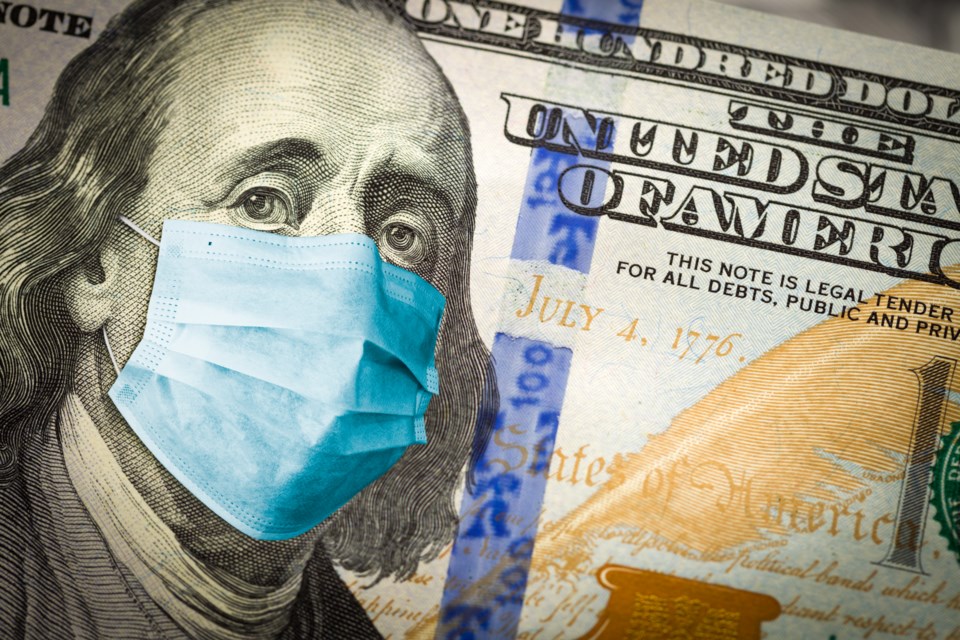Editor's note: This story was originally published by Colorado Newsline. Read the original story here.
Following the final passage of Democrats’ $1.9 trillion COVID-19 stimulus package by the House of Representatives this week, President Joe Biden put his signature on the bill in a brief ceremony at the White House on Thursday, clearing the way for billions in aid to begin flowing to Colorado.
“This historic legislation is about rebuilding the backbone of this country,” Biden said, “and giving people in this nation — working people, middle class folks, the people that built the country — a fighting chance.”
Some of the bill’s best-known provisions will provide a total of more than $17 billion in direct aid to individuals and government entities in Colorado, according to independent analyses and estimates provided by members of its congressional delegation. Billions more will flow to the state through other conditional or indirect programs funded by the bill.
Colorado’s two Democratic senators joined the state’s four Democratic House members in voting to pass the ARP, with its three GOP representatives opposed. Liberal and progressive groups cheered the bill’s passage this week, saying it will improve the lives of millions of Coloradans in the final months of the pandemic and beyond.
“Over the last year, we’ve seen the ways that substantial public investments can make a huge difference for the families, businesses, and communities that make up our economy,” Colorado Fiscal Institute executive director Carol Hedges said in a statement. “The passage of this plan will provide badly needed relief for hundreds of thousands of Coloradans who are struggling to afford basic needs like food and rent, it will cut child poverty in half, and help get all of us through the end of this challenging period in our history.”
Here are some of the key benefits Colorado will receive under the ARP:
$6.1 billion in aid to state and local governments
Lawmakers in the Colorado General Assembly will get an extra $4.1 billion to allocate through the state budget, with $171 million of that total reserved for capital expenditures.
Another $1.1 billion will be allocated to county governments proportionally based on population size. Denver County and El Paso County are in line to receive about $140 million, based on preliminary estimates released by Congress, while half of Colorado’s 64 counties are expected to receive less than $3 million.
[ Related: Longmont expects $11M from federal COVID relief package signed into law Thursday ]
Colorado’s 271 municipal governments will also be divvying up about $827 million in aid. As a combined city and county government, Denver is projected to receive another $170 million, bringing its total to an estimated $310 million. Allocations for other cities range from $76.8 million for Colorado Springs to $10,000 for the town of Paoli near the Kansas border, population 34.
$2.2 billion in funding for education and child care
Colorado will receive a $1.2 billion share of the ARP’s emergency funding for K-12 education, 90% of which must be distributed to local school districts and made available within 60 days.
The bill will also provide $495 million for higher education in Colorado, and $466 million for child care. Another $10.8 million will go towards Head Start programs for Colorado children.
$6.5 billion in direct stimulus payments
More than 80% of Coloradans — 3.4 million adults and 1.4 million children — will receive all or part of the bill’s $1,400 stimulus checks, according to an analysis from the Institute on Taxation and Economic Policy. The payments begin phasing out at incomes above $75,000 for individuals, $112,500 for heads of household and $150,000 for married couples filing jointly.
$2.2 billion in expanded household tax credits
The bill includes a one-year expansion of the federal Child Tax Credit to a maximum of $3,600 for each child under age 6 and $3,000 for each child between ages 6 and 17 — an idea long championed by Colorado Sen. Michael Bennet. The expansion will provide nearly $2 billion in tax benefits to roughly 2.5 million Colorado adults and children, the majority of which will go to families with incomes in the bottom 60%, according to an ITEP analysis.
“The American Rescue Plan addresses a problem we don’t discuss enough — child poverty — by cutting it in half,” Bennet said in a statement on the bill’s passage. “I can think of nothing more at war with who we are as Americans than allowing kids to grow up in poverty. This tax credit will transform the lives of millions of Coloradans during this crisis and afterward.”
The bill also includes an expansion of the Earned Income Tax Credit for low-income workers without children. In Colorado, about 345,000 workers will reap an estimated $219 million in additional tax credits, with an average individual benefit of $700.
Billions in extended unemployment benefits
More than 200,000 Coloradans currently receiving unemployment benefits under expanded programs like Pandemic Unemployment Assistance or Pandemic Emergency Unemployment Compensation will see their eligibility extended into September. That includes a $300 weekly boost for most jobless Coloradans, likely adding up to billions in overall benefits over the coming months.
“It is our top priority right now to ensure Coloradans experience a seamless transition as the federal unemployment benefit programs are extended through the first week of September,” Joe Barela, executive director of the Colorado Department of Labor and Employment, said in a statement this week. “We are grateful that Congress took the necessary steps before the current programs expire, saving hundreds of thousands of Coloradans the financial hardship and gap in payments we saw earlier this year due to a delay in federal action.”
Colorado Newsline is part of States Newsroom, a network of news outlets supported by grants and a coalition of donors as a 501c(3) public charity. Colorado Newsline maintains editorial independence. Contact Editor Quentin Young for questions: [email protected]. Follow Colorado Newsline on Facebook and Twitter.



